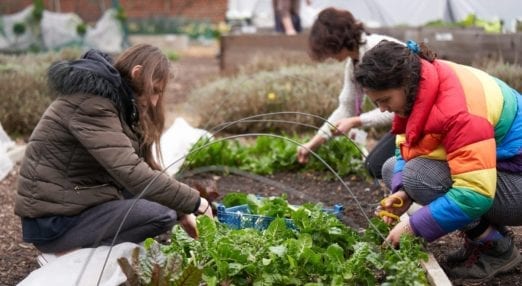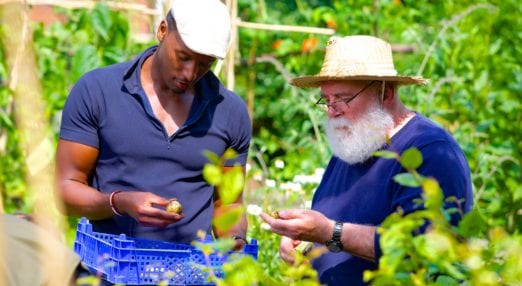The Bethlem Royal Hospital Therapy Garden uses the power of gardening to help patients recover from severe mental illness. The hospital has a long history of successfully using horticulture to support patients and there has been a therapeutic garden on the site in Beckenham since 1930.
The garden, which is funded by Maudsley Charity, has been able to operate throughout the Covid-19 pandemic, creating a lifeline for patients who might otherwise have had little opportunity to be outdoors, especially important during the challenging time since March.
The therapeutic benefits of horticulture are well documented, and gardening has long been used as a healing medium for a range of mental health problems such as anxiety and depression.
5 Tips For Improving Your Mental Health Through Gardening
The project is urging everyone to connect with nature – whether you have your own garden or a local park. Sergio Heredero, Horticultural Instructor at the Bethlem Garden offers five top tips for improving your mental health through connecting with nature, based on the New Economic Foundation’s Five Ways to Wellbeing.
- Connect with other people
Give a hand on the land in your local community garden, allotment or just try some guerilla gardening in neglected areas of your neighbourhood with some friends. It will provide a sense of belonging and self-worth through sharing experiences and having a positive impact on you and beyond.
- Capital Growth: Urban food growing and community gardens
- GOV.UK: Apply for an Allotment
- Guerrilla gardening
- Be physically active
Did you know that getting out in the garden for just 30-45 minutes can burn up to 300 calories? Even low impact activities as sowing seeds or raking leaves involve focus, balance and coordination. Regular gardening as a form of exercise is extremely beneficial to your mental and physical health. Research suggests that people who garden are less likely to suffer from depression, anger and stress.
“The cure for this ill is not to sit still, Or frowst with a book by the fire; But to take a large hoe and a shovel also, And dig till you gently perspire; And then you will find that the sun and the wind, And the Djinn of the Garden too, Have lifted the hump — The horrible hump — The hump that is black and blue!” – Rudyard Kipling
- Learn new skills
Growing plants is a laboratory where you can experiment, source, create, inspire and learn. You can grow food and cook with fresh home–grown produce, or design your own beautiful Eden in your backyard. It might inspire you to paint or even lead to a new career or hobby. The tomatoes you grow might be smaller than the ones in the catalogue picture, or they might never turn red because it was too late to plant them, but you can make delicious green tomato chutney out of it. Creative learning will increase your self-esteem and sense of achievement and purpose.
- BBC: Seasonal Food by Month
- Study for an RHS Qualification
- Royal Academy: Six of the best artist-gardeners
- Give to others
Why not share the bounties of your garden? Random acts of kindness such as giving a bunch of flowers or a lettuce grown in your garden to your neighbour will create positive feelings and help build community around you. If you don’t have a garden, your elderly neighbour will appreciate a hand to maintain their own.
Have you thought about volunteering in a community garden or food bank? The act of giving will give you a feeling of purpose and self-worth while connecting with other people.
- Pay attention to the present moment (mindfulness)
A garden is a feast to the senses. The smell of lavender in the morning, holding a silky lamb’s ear leave between your fingers, bees buzzing in a hot summer day, nibbling some peppery rocket just harvested, witnessing a flock of jackdaws heading to their perching tree before dawn – all these experiences will help ground you in the present.
Being in nature can be a form of mindfulness that will contribute to heightening your awareness, enjoy life more and positively change the way you feel and how to approach challenges.
Related reading:
-

Bethlem Garden
Bethlem Occupational Therapy Garden puts patients in touch with nature at Bethlem Royal Hospital.
Read more
-

Our work in hospitals
We fund projects located in South London and Maudsley NHS Foundation Trust's hospital services
Read more
-

Sydenham Garden
The Transitions Pathways Project helps beneficiaries progress into employment, volunteering and further learning
Read more
